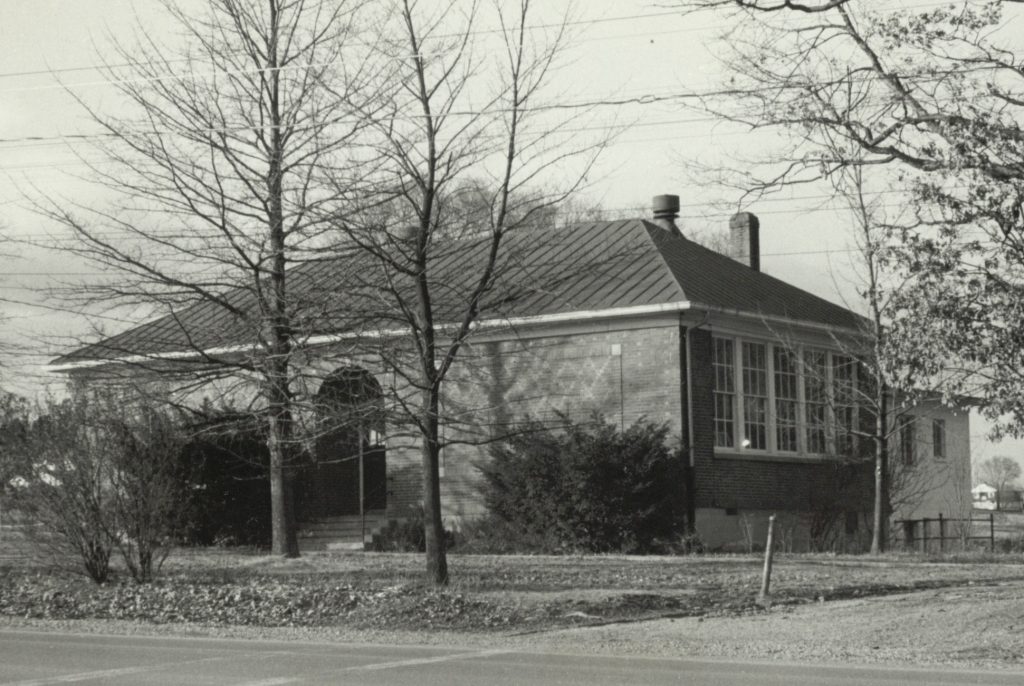This weekend, Park School in Harrisonburg hosts its second annual reunion, with special guests to highlight the school’s unique role in local racial integration during the time of “massive resistance,” a state-sponsored effort to defy federal court orders to integrate Virginia schools.
The school was built in 1918 by Eastern Mennonite School with two goals: to educate the children of faculty and staff, and for student teachers to gain practical experience. It was taken over by Rockingham County Schools in 1921, but had a primarily Mennonite student body, teaching faculty and administration. A new three-room schoolhouse was built in 1929 to accommodate a growing student body.
In 1964, the school welcomed the five Ewell siblings, who had moved from Farmville to a home on South College Avenue. The neighborhood was then located in Rockingham County.
This was during a time when Prince Edward County Schools, following a state policy called “massive resistance,” had voted to close their schools rather than integrate. The father, Samuel Edward Ewell Sr., had lost his job as a teacher of math, history and English and the children had lost a year of schooling.
When the Ewell children came to Park School on the first day of classes, then Principal Jon Scott Bender, a ’62 graduate of EMS, didn’t waver.
“He actually called the School Board and said he had five black children and asked what he was to do with us,” Margaret Ewell, 63, said in a 2016 Daily News-Record article. “He stated, ‘I will not send them home.'”
That history will be celebrated at a program and potluck meal on Sunday, Sept. 3 from 4-7 p.m. at Park View Mennonite Church in Harrisonburg. All former students, staff and the public are welcome.
Myron Augsburger, president emeritus of Eastern Mennonite University, will offer the keynote address. Special guest Beau Dickinson, coordinator of social studies at Rockingham County Schools, will also speak. Dickinson is coordinating a study of the era, and will be accompanied by former students from Farmville.
This is the second annual reunion. The first, held in 2016, was also organized by the five Ewell siblings.
According to a Daily News-Record article, Samuel and his wife Lucille moved into the white community and sent their children to a white school as a way of promoting peace between whites and blacks.
“We were an experiment, kind of,” Margaret Ewell said. “Our mom and dad chose a safe environment. They knew that we would be safe and happy.”
After the school closed, nearby Eastern Mennonite High School held industrial arts classes there. The building was razed in April 1990 to make way for Park Woods Apartments.
For more information about the program and meal, call Elizabeth Rohrer at 540-908-5086 or visit www.parkschoolreunion1967.com

This is an amazing story. I went to Park School in 1951-52 school year and it was where I discovered the joy of reading thanks to Elsie Lehman my teacher in 3rd grade. This story awakens many memories of what it was like to live in Park View in the early 50s. Although I am not able to attend the reunion this year I am interested in learning more about this story of the Ewell family coming to Park View.
I am so grateful to Jon Scott Bender for standing up for what is right in welcoming the Ewell children to Park School. May we work for racial justice today and add to his legacy.
Would love to be there for this celebration. My sisters and I all went to Park School in the early sixties. We lived across from the Ewells on South College Avenue, Charlie (Charles) was one of my best friends until our family moved to the Netherlands in 1967.
I deeply regret not being able to be at this celebration. I grew up next door to the Ewells on South College Avenue and I also remember playing with Charlie. As a child I had no idea that there was anything unusual or historic about this. I was totally unaware of the conflicted, oppressive world around me. We were just kids having fun together. Reflecting back, I have seen how this naive childhood space of fun learning/playing together as children opened my mind to healthier possibilities than might otherwise have been the case. These wonderful neighbors helped start me off on a path of enrichment which has propelled me into a life-giving adventure of expanding inter-cultural and international relationships and passion for ministry in overcoming racism and oppression. It’s humbling to look back and try to appreciate how much courage and vision it must have taken for the Ewell family, in a time of such intense racial animosity, to take the risk of inviting us to join them as neighbors in a new kind of community. I am grateful to them for the the positive impact their invitation has had on my life.
I, too, am struck by the courage of the parents in taking such a big step with their whole family. And I am so glad that the Park View community proved to be as supportive as it was. I don’t think I realized at the time what a big step Sam and Lucille had taken. I also recall that we watched a lot of TV at their house!
I knew nothing of this history, except that Charlie was one of my favorite classmates. I got to know him during mini-term in Philadelphia at EMHS. Charlie attended the miniterm even though his father had passed the week before. I can say that his presence at school made it a much richer experience.
I did my student teaching at Park School.